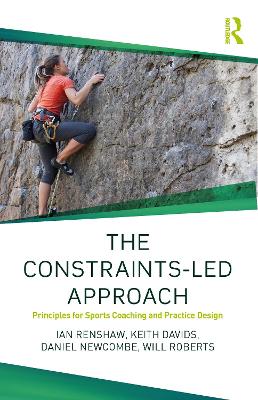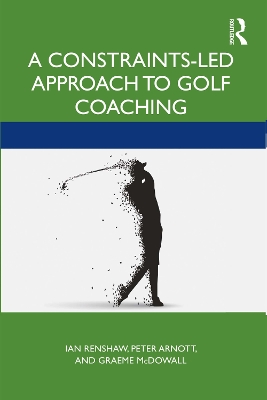Routledge Studies in Constraints-Based Methodologies in Sport
2 total works
The Constraints-Led Approach
by Ian Renshaw, Keith Davids, Daniel Newcombe, and Will Roberts
For the last 25 years, a constraints-based framework has helped to inform the way that many sport scientists seek to understand performance, learning design and the development of expertise and talent in sport. The Constraints-Led Approach: Principles for Sports Coaching and Practice Design provides students and practitioners with the theoretical knowledge required to implement constraints-led approaches in their work.
Seeking to bridge the divide between theory and practice, the book sets out an 'environment design framework', including practical tools and guidance for the application of the framework in coaching and skill acquisition settings. It includes chapters on constraints-led approaches in golf, athletics and hockey, and provides applied reading for undergraduate and postgraduate students of motor learning, skill acquisition and developing sport expertise.
Providing a thorough grounding in the theory behind constraints-led approaches to skill acquisition, and a foundational cornerstone in the Routledge Studies in Constraints-Based Methodologies in Sport series, this is a vital pedagogical resource for students and practising sports coaches, physical education teachers and sport scientists alike.
A Constraints-Led Approach to Golf Coaching
by Ian Renshaw, Peter Arnott, and Graeme McDowall
While the popularity of golf is coming under increased pressure, it continues to hook millions of players. However, the complexity of the game and the extremely high level of precision required to hit the ball consistently well means that it is a game that is difficult to even become ‘good’ at, let alone master. Consequently, irrespective of whether the player is a weekend golfer, a club member, or a tour professional, the search for the key to playing good golf feeds an insatiable desire for ideas and tips to improve golf performance and bring one’s handicap down. However, traditional coaching, with its primary focus on developing the perfect swing is not leading to a reduction in handicaps and the time is ripe for a new approach. This book aims to fill this void and is a landmark text for golf coaches and players about applying a constraints-led approach (CLA) to golf coaching. In this book, two golf coaches, Pete Arnott and Graeme McDowall talk to Ian Renshaw to demonstrate how their practice is driven and inspired by their alignment to a CLA. A Constraints-Led Approach to Golf Coaching includes case studies and examples of how constraints are manipulated to induce adaption in the technical, tactical (or put in golf terms, course management), physiological, and psychological development mechanisms needed to improve at golf. Examples cover coaching from their work with beginners, high handicappers, aspirant tour players, and elite players looking to make the ‘tour’.

